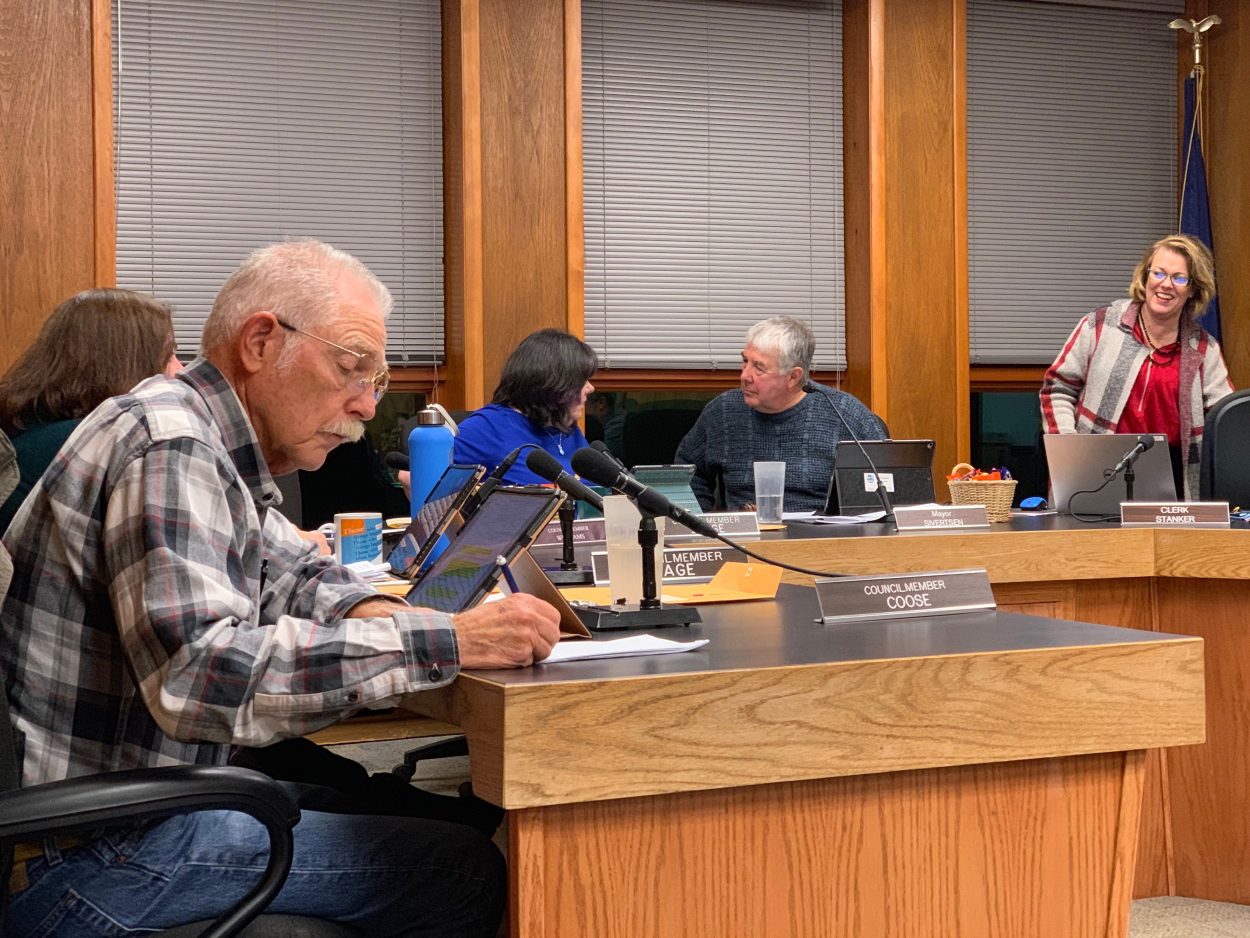
Ketchikan’s city council will weigh in on the debate over exempting Tongass National Forest from the federal roadless rule. The city’s challenges over its water supply and what to do with its historic firehouse building are among other items to go before the council.
The Clinton-era rule adds restrictions to road building in Tongass National Forest that critics say hinders development and logging.
Successive Alaska governors and the state’s Congressional delegation have long pressed the Forest Service for an exemption. In mid-October, the Forest Service came out with a list of six alternatives. The Trump administration now supports fully exempting the nation’s largest national forest from the Roadless Rule.
Mayor Bob Sivertsen says Ketchikan should support an exemption.
“Well, I think it’s important for the economy of Southeast Alaska and Alaska itself,” he told KRBD in a phone interview
He’s placed a resolution on the agenda to be discussed at Monday’s city council meeting.
That could generate pushback. Written public comments and oral testimony at hearings inside Alaska and out have consistently been in favor of keeping the Roadless Rule in place.
That was the tenor and tone earlier this month when more than a dozen people in Ketchikan spoke at a meeting organized by the Forest Service. Here’s Ketchikan City Councilor Janalee Gage.
“This is a complete attack on the people of Southeast,” she said during the subsistence hearing. “It’s saying that you do not matter, and we’re going to come in and do what we want with your land.
That puts her squarely at odds with the mayor’s proposed resolution.
In other news, Ketchikan’s water source exceeds the limit for fecal coliform bacteria. That’s according to a city memo that reported the results last month. That means the city might need to build a filtration plant to meet state and federal standards.
Estimates to build a filtration plant are upwards of $70 million. Operations are estimated to be at least $2 million annually. That raised the hackles of Councilor Sam Bergeron who called in to the Nov. 7 meeting.
“I’m worried about a $70 million unfunded mandate from the federal government,” he said.
The council authorized spending more than $400,000 on engineering to study the issue.
But at Bergeron’s request, the council will discuss potential alternatives to filtration at Monday’s meeting.
The council will also consider selling the city’s former firehouse in a sealed-bid auction.
The proposal doesn’t list a minimum bid. An in-person auction with a starting price of $335,750 resulted in no bids last month. However, the city reserves the right to reject any bid — including the highest bid.
The council will also discuss the possibility of annexing Ward Cove at the request of Councilor Mark Flora.
In a letter to the Army Corps of Engineers in September, the mayor and council said they were concerned that the proposed private 2-berth mega-cruise ship dock would have serious financial consequences for the city, which relies on visitors sales tax revenue and head taxes to fund dock maintenance and city services.
But city management says in a memo that any decision on annexation would be premature. The council commissioned a study of the consequences of annexing Ward Cove in early October. That’s due back to the council by the end of March.
The meeting starts at 7 p.m. Monday in Ketchikan’s city council chambers. The public will have a chance to comment at the beginning of the meeting.





